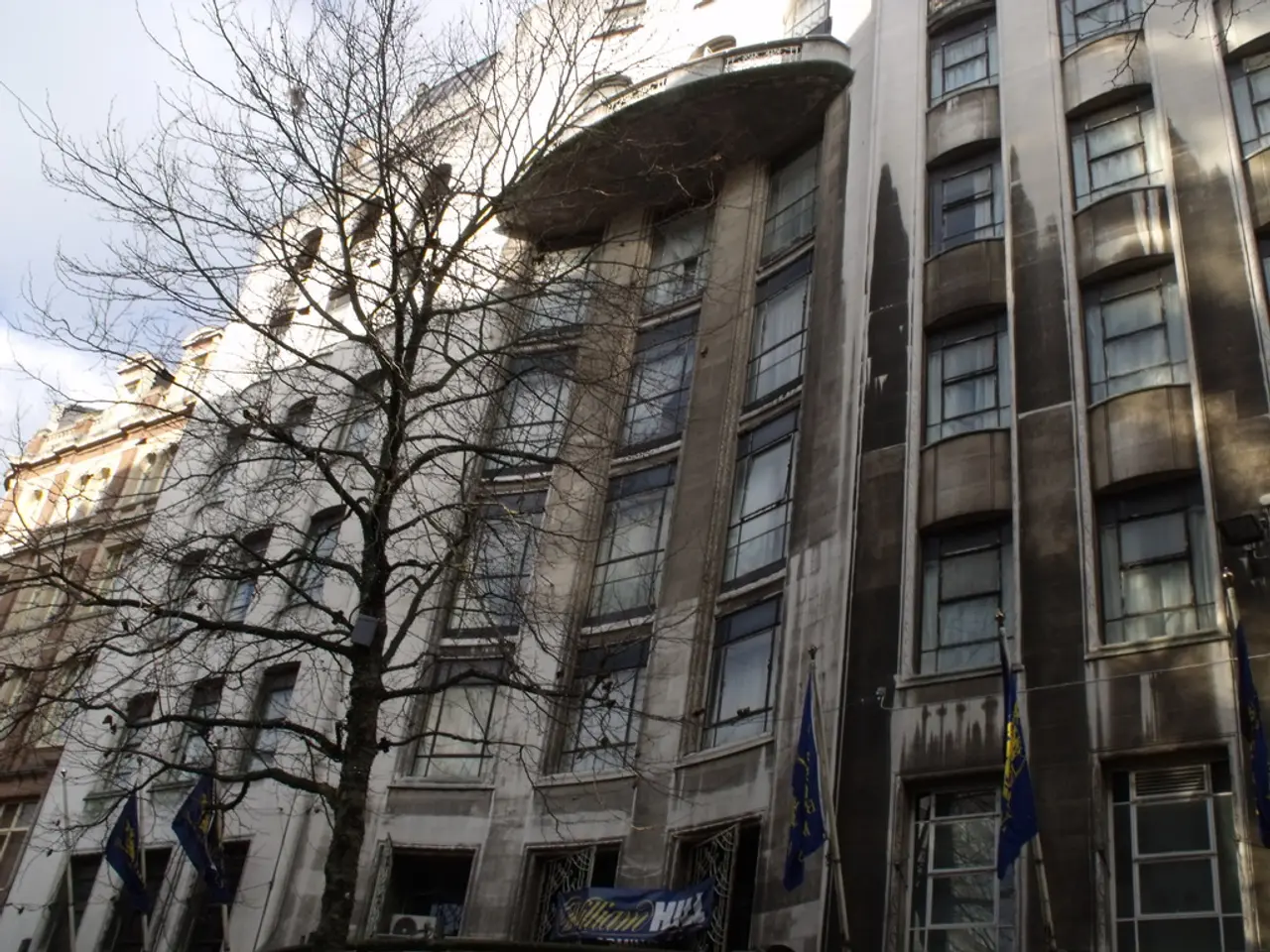EU leaders review accomplishments during Poland's tenure as President of the European Union Council
Poland's six-month stint as the President of the Council of the European Union came to an end on June 30th, 2025. And it's fair to say that this tenure was one hell of a rollercoaster ride!
From January 1st to June 30th, 2025, Poland navigated the challenging landscape of EU Council meetings with grit and determination. Not one to back down, Polish President Donald Tusk proudly declared that Poland managed to "convince Europe that the current geopolitical situation requires bold and unprecedented decisions," effectively changing the EU paradigm.
The European Union was originally conceived as a continent without war, without conflict, and without the need for force. But Tusk asserted, "Do you know how difficult it was to break this paradigm? This naive European faith?"
One of the biggest successes during Poland's presidency included a whopping 150 billion euros allocation for defense under the Strategic Autonomous Military Capabilities Enhancement (SAFE) program. This funding boost will support the arms industry in EU countries, with Poland leading the charge.
Moving on to 'Shield East' - another major achievement that saw Poland securing significant financial support during its presidency.
However, during Poland's EU presidency, a controversial law was also passed, giving the government the power to temporarily suspend applications for asylum. Critics argue that this law can be abused and may lead to human rights violations, particularly concerning the Polish-Belarusian border situation. But the Polish Prime Minister maintains that the controversial decision is necessary for Europe to confront illegal migration effectively.
The geopolitical tensions during Poland's EU presidency were also alluded to by the head of the Polish Ministry of Foreign Affairs, Radosław Sikorski. In an interview with the Polish Press Agency, Sikorski commented that the Polish presidency transpired during a highly volatile period for the world, "filled with war at the borders and a crisis in the Middle East."
The increase in defense spending was a recurring theme throughout Poland's EU presidency, with Tusk himself emphasizing that Alliance member states had committed to increasing defense spending to 5% of GDP. 3.5% is earmarked for basic defense, while 1.5% is allocated for defense-related investments. According to government sources, Poland is projected to spend 4.7% of its GDP on defense by the end of 2025.
As the curtain fell on Poland's EU Council presidency, Ursula von der Leyen, the President of the European Commission, praised Poland's efforts, saying, "Your presidency has been difficult, but you managed it." Von der Leyen pointed to an impressive 37 pieces of legislation and negotiations on 18 more agreements that were successfully brokered during Poland's tenure, demonstrating the country's indomitable spirit and strategic prowess in the European political arena.
Source: Europe and the World
Related Topics: EU Policy, Donald Tusk, European Union
Enrichment Data:During Poland's presidency of the Council of the European Union in the first half of 2025, several key achievements and controversies emerged, with notable focus on defense spending, asylum laws, and geopolitical tensions.
Key Achievements
- Defense Spending and Security Cooperation: Poland's presidency coincided with a heightened focus on European defense, driven by ongoing geopolitical tensions in the region. Under Poland's leadership, the Council advanced discussions on increased defense spending and strengthened EU strategic autonomy, contributing to EU cohesion on defense priorities.
- Asylum Laws and Migration Policy: Poland pushed for reforms on EU asylum and migration policy, facilitating compromises to balance humanitarian responsibilities and border security concerns.
- Geopolitical Tensions and EU Unity: Navigating geopolitical challenges, particularly Russia's aggression in Ukraine, was critical during Poland’s presidency. Poland played a crucial role in maintaining a strong EU response, preserving unity in the face of external pressure.
Controversies
- Defense Spending Disputes: Criticism arose over Poland's focus on boosting defense budgets, with some member states prioritizing social and economic spending over military investments. Debates around equitable burden-sharing and budget allocations surfaced, indicating divisions within the EU on defense spending.
- Asylum Policy Tensions: Reforms to asylum laws saw dissent from advocacy groups and member states, with concerns over either excessive restrictiveness or insufficient protection of migrants’ rights. Poland's historically strict stance on migration sparked debates on the balance between security and humanitarian obligations.
- Handling of Geopolitical Pressures: Poland's tough stance against Russian aggression sometimes complicated diplomacy with countries favoring more cautious engagement strategies, highlighting differing national foreign policy priorities within the EU.
In summary, Poland's 2025 EU Council presidency culminated in significant accomplishments in defense cooperation, migration policy reform, and geopolitical unity, although accompanied by disagreements over defense spending levels, asylum law approaches, and management of regional tensions. Poland's presidency was generally seen as successful in light of these challenges, demonstrating its influential role in shaping EU policy during a crucial period.
The controversial law passed during Poland's presidency, which grants the government the power to temporarily suspend applications for asylum, sparked debates on the balance between security and human rights obligations, relevant to the politics of policy-and-legislation and general-news. During the EU's volatile geopolitical landscape, Poland managed to secure significant financial support for 'Shield East' as part of its policy-and-legislation, marking a crucial achievement in war-and-conflicts and politics. This successful defense funding boost, along with the 150 billion euros allocation for the strategically crucial Strategic Autonomous Military Capabilities Enhancement (SAFE) program, placed Poland at the forefront of defense policy-and-legislation within the European Union.








